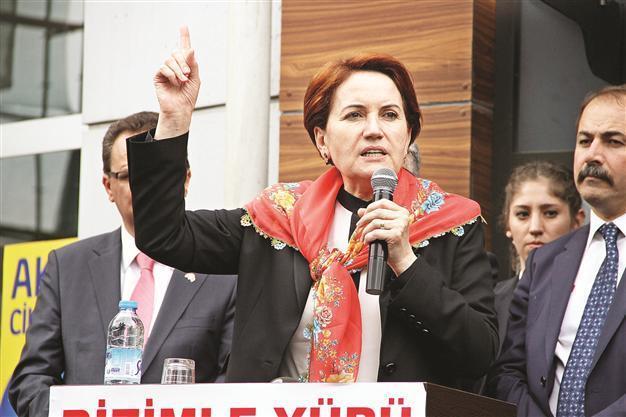Possible coalition options to be tested in election of Turkey’s new parliamentary speaker
ANKARA

AA Photo
The election of Turkey’s new parliamentary speaker will be the first area in which possible coalition options will be tested, while discussion on possible candidates from the four political parties in the legislature has commenced.
According to a draft calendar prepared by the Parliamentary Speaker’s Office, the inauguration ceremony of the 550-seated new parliament will take place on June 24, which is expected to be the fifth day after the Supreme Election Board (YSK) announces the official election results.
Until the new parliamentary speaker is elected, an interim parliamentary speaker’s council will be formed with the oldest deputy, Deniz Baykal from the Republican People’s Party (CHP) as the interim speaker, and two of the youngest deputies, 26-year-old Justice and Development Party (AKP) deputy Fatma Gaye Güler and Peoples’ Democratic Party (HDP) deputy Tuğba Hezer, as the secretary members.
Following the inauguration ceremony, the election for the new speaker is expected to be held on June 30.
The speaker will be elected in as many as four rounds, which could all take place on the same day.
In the first two ballots, two-thirds of the total number of deputies (at least 367 out of 550) are required, while in the third ballot, an absolute majority of the total number of deputies (at least 276 out of 550) are required.
In the event that an absolute majority cannot be obtained in the third ballot, a fourth ballot will take place between the two candidates who obtain most of the votes. In the fourth ballot, the candidate receiving the highest number of votes will be elected speaker.
If reconciliation for a coalition is met before June 30, then the speaker will most probably be elected accordingly. If the bigger party in the coalition gets the prime ministry, the smaller party usually gets the parliamentary speaker’s post. If this is not the case, then the election for the speaker could be more contentious.
While the CHP is expected to want to continue with Baykal as its candidate, the Nationalist Movement Party (MHP) is expected to present Ekmeleddin İhsanoğlu or Meral Akşener as their candidate.
From the AKP, the names of Numan Kurtulmuş, Ahmet İyimaya and Mustafa Şentop are being mentioned.
It is not expected that the parliamentary speaker will be elected in the first two rounds, where 367 votes are needed. In the third round, possible coalitions between the AKP and MHP on one side and the CHP and HDP on the other are being discussed. There is also an option where all the opposition parties unite to prevent the AKP’s candidate from becoming the new parliamentary speaker.
Once the speaker is elected, the quota of the Parliamentary Speaker’s Council, consisting of 16 members, will be distributed among the parties according to their vote count.
